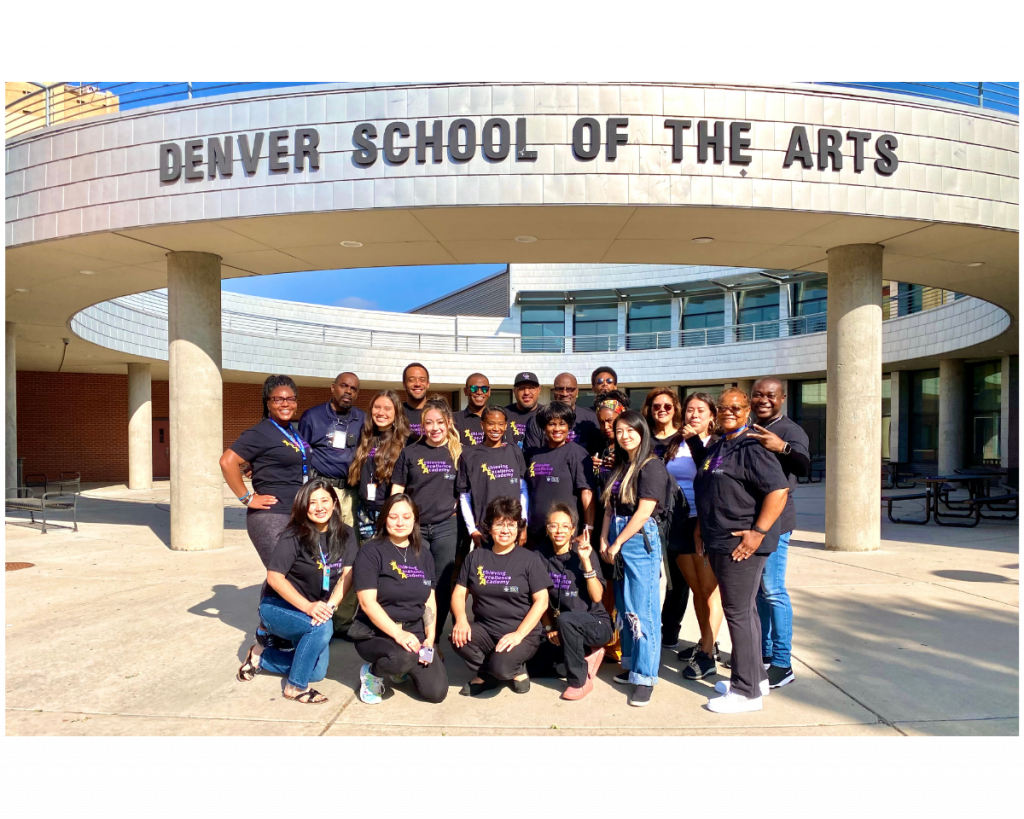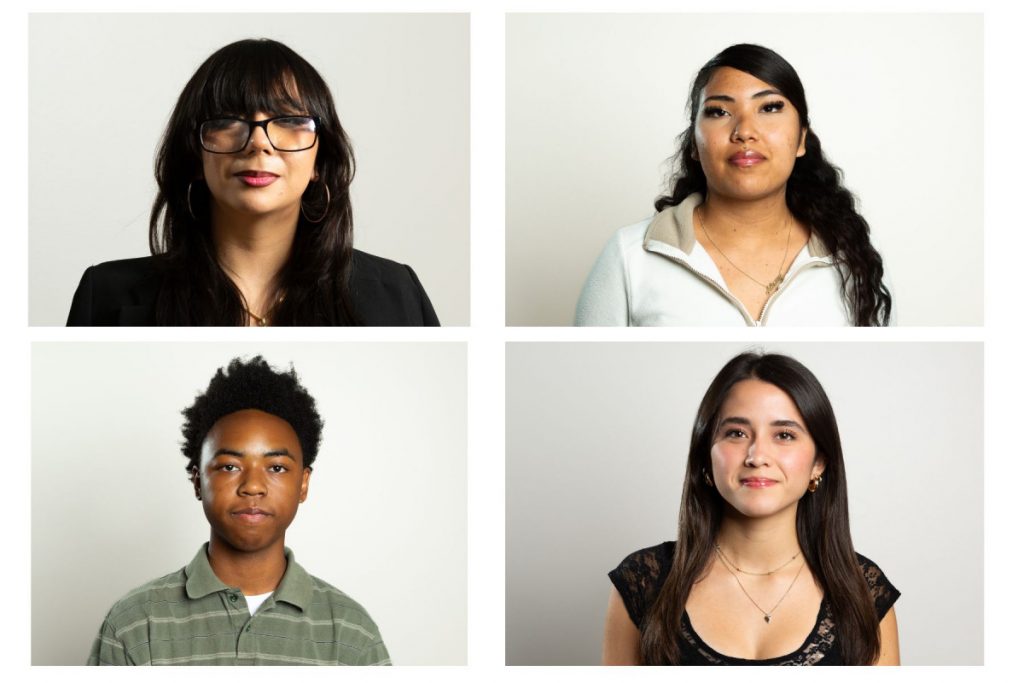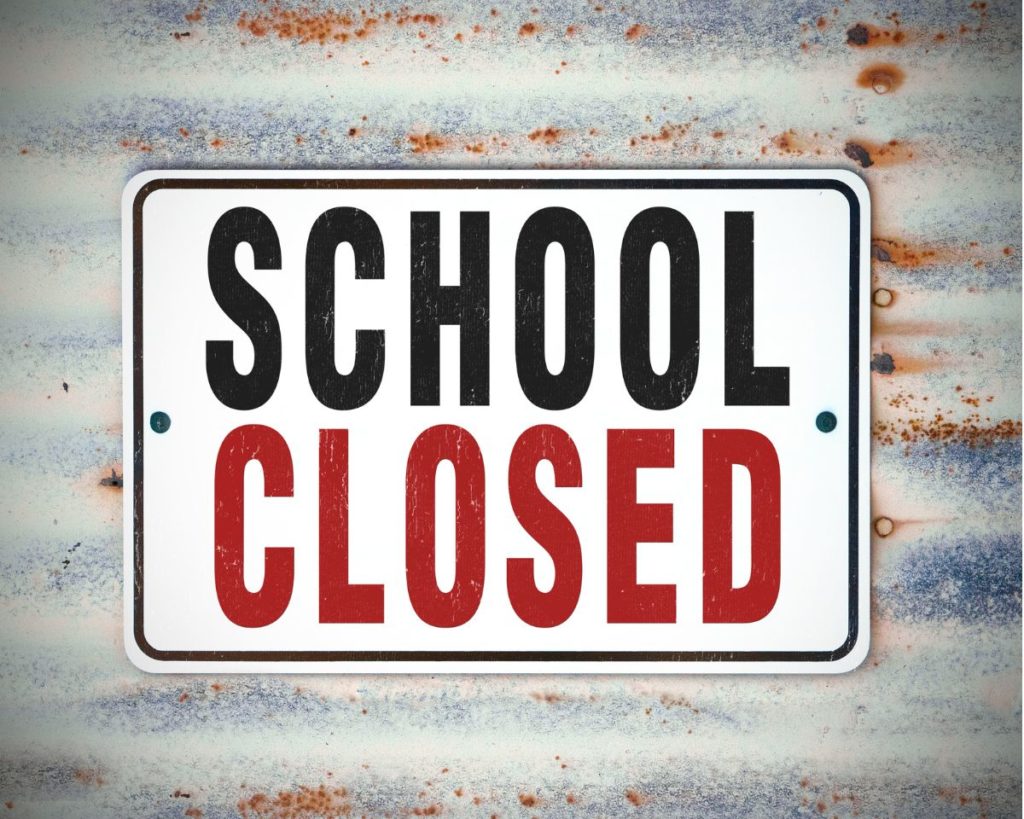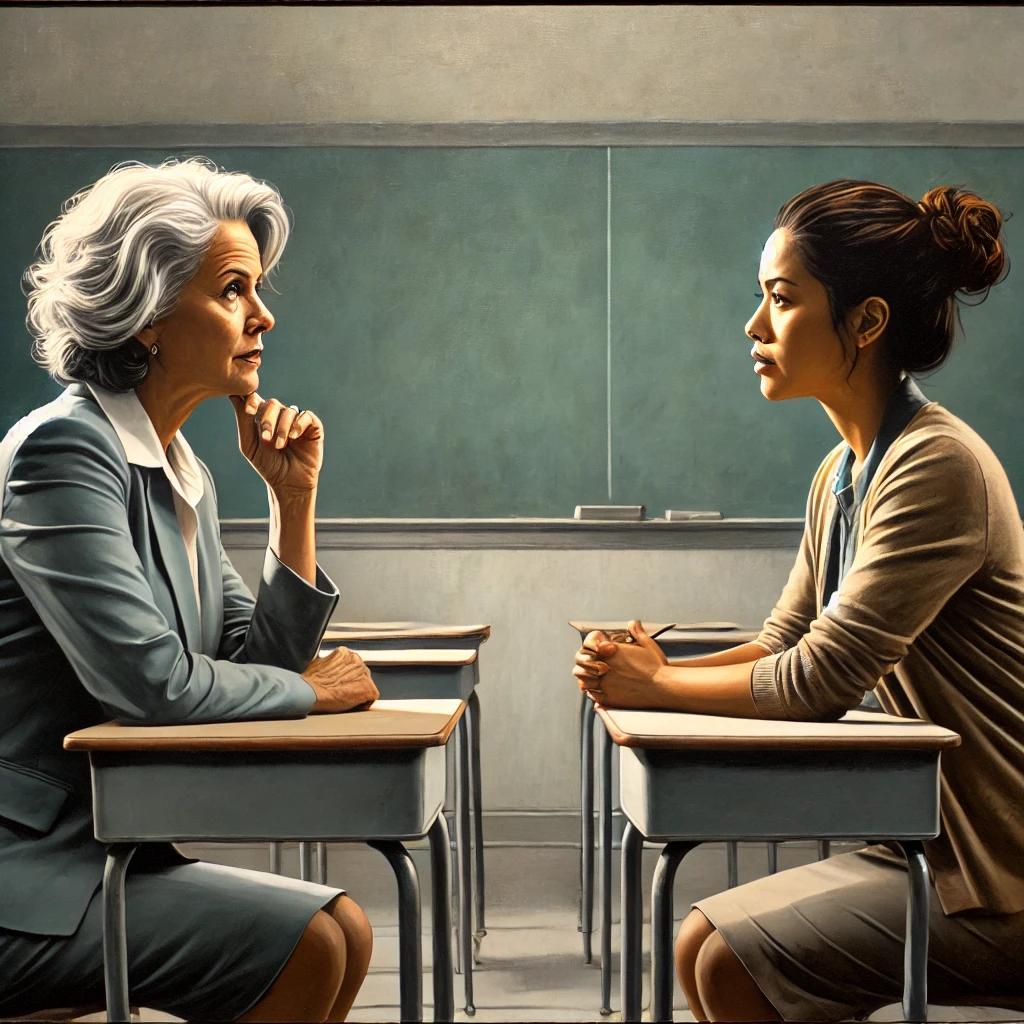Editor’s note: This article was written by Ashlea Skiles, M. Ed. She is DEnver Public Schools’ CELT Program Manager of Equity Initiatives and the Achieving Excellence Academy Program Developer & Director. You can view her bio here.
When I joined the Denver Public Schools Culture, Equity and Leadership Team in 2021, I was hired to help implement recommendations from the African American Community Task Force. This was aimed at combating persistent inequities among the Black educator and student of color experience across the district.
I was given creative control to design and implement a meaningful cultural identity program for Black students and students of color. I worked cross-functionally with leaders throughout the district and the community to develop the Achieving Excellence Academy (AEA).
AEA is a cultural summer program that highlights the experiences of Black/African American, Latinx/Indigenous, & Asian American/Pacific Islander families, students, and educators. It was launched in the summer of 2022 for rising 9th graders. It was open to students and families interested in cultural background knowledge and developing leadership skills.
Rather than being based solely on grades or attendance, we wanted to ensure student applicants had a genuine interest in learning more about their self-identity and culture.
Our recruitment efforts were expansive, targeting students of color across the district. The AEA curriculum was developed, teachers were hired, and community partners were engaged to provide experiential learning opportunities in and outside of the classroom. The program received widespread acclaim and culminated in a commencement ceremony at the University of Denver.
In partnership with Denver Public Schools, researchers from the DU’s Morgridge College of Education conducted a research study to examine AEA’s strengths, areas of growth, and impacts on student and teacher participants. The aim of the research project was to provide actionable feedback for improvement for year two and beyond.
In year two we introduced a more personalized approach to the program. Each teacher was assigned a caseload of students and engaged in quarterly check-ins. Students and teachers co-created goals focused on a sense of belonging, coalition building, leadership skills, and social-emotional learning.
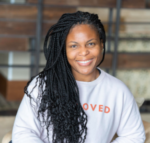
I know the power of team teaching and was intentional about this being the format for AEA. Before the program began, educators completed a course on understanding the district’s unique racial history to set a baseline before students began. Teachers engaged in unlearning traditional practices in the classroom before designing an “unschooled” curriculum together in professional learning communities.
The three-week summer program includes “classroom” time and cultural excursions. The AEA curriculum incorporates project-based learning. This year, one class created a podcast, another created a zine, while other students created action plans around social justice areas of interest and passion. Our model gives students the opportunity to learn from non-traditional spaces with educators and community leaders, but also from one another.
Each day begins with a dedicated social emotional time led at first by teachers, and eventually by students with our community partners. Next, in their self- elected affinity groups, community partners lead a specialized curriculum that includes guest speakers, cultural experiences and historical understandings.
The cultural excursions are curated by those steeped in their respective cultures to give those experiences true depth. All our students visited the Cleo Parker Robinson Dance and connected with company dancers from all backgrounds and ethnicities about global cultural dances.
All our students also visited Lincoln Hills, the only resort built for African Americans during segregation west of the Mississippi, to learn about the history of the site, but also about the conservation efforts taking place today.
Each affinity group takes a personalized cultural excursion, too. The Black/African American affinity group did a walking tour of Welton Street and Five Points. The Latinx/Indigenous affinity group did a tour on the west side beginning at West High School, and the Asian American/Pacific Islander affinity group toured Sakura Square and the Chinatown revitalization efforts.
All three visited stores and establishments and had a formal restaurant dining experience which was important for me to be able to give them. We had family members attend the cultural excursions, which, I believe, contributed to the success of the program because families are a part of learning as well.
We are planning to continue adding affinity groups and grade levels each year. We also introduced a voluntary peer-to-peer mentor program this summer supported by the University of Denver, with rising 10th graders paired with rising 9th graders.
We want our teachers to grow alongside our students, so we partnered with a district DPS Peer Observer, Silvia Curiel-Torres, to do non-evaluative observations that provide a true, non-judgmental classroom evaluation.
My dream is to establish a Seal of Excellence for the program that would provide non-traditional scholarships for students to pursue trade schools, start businesses, or contribute to their communities, serving as a highlight on resumes, and emphasizing the students’ commitment to DEI work.
Achieving Excellence Academy has been a resounding success in empowering students through a combination of culturally enriching experiences, individualized goal setting, and mentorship opportunities.
With ongoing community support, family involvement, and the dedication of educators, this program continues to provide a transformative educational experience, nurturing students’ sense of belonging, coalition building, and leadership skills. Our aim is that the program paves the way for a brighter future for all participants.
You can experience the 2023 AEA here. You can learn even more about AEA classroom communities and cultural excursions here.

